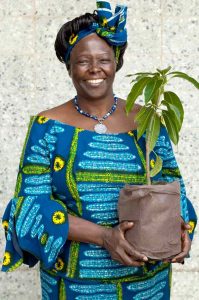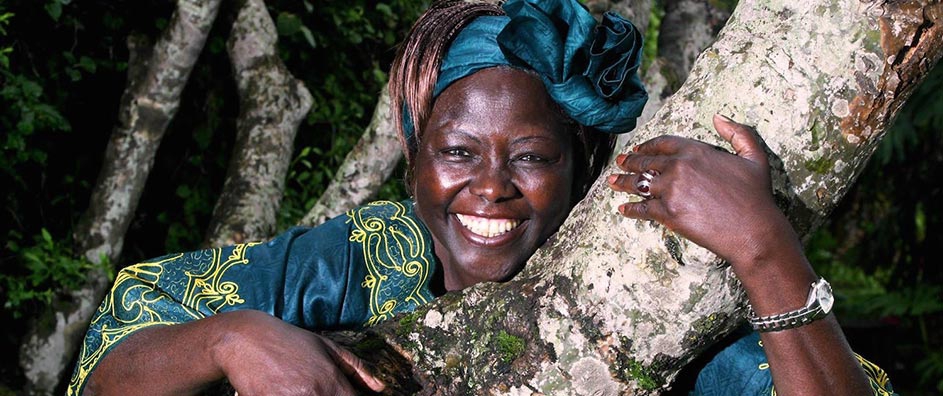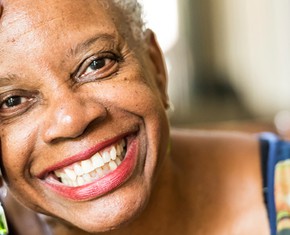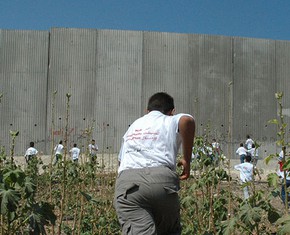The views expressed in our content reflect individual perspectives and do not represent the authoritative views of the Baha'i Faith.
You can count the African women Nobel Peace Prize winners on one hand—with a thumb left over. Can you name them?
Here’s a list of awards and a sampling of honors for one of those remarkable women, the very first African woman to win the Nobel Peace Prize, who lived from 1940 to 2011. Let’s see if you can guess her name.
In 1984 she received the Right Livelihood Award which is given to “honour and support courageous people and organisations offering visionary and exemplary solutions to the root causes of global problems.” The Goldman Environmental Prize for Africa went to her in 1991. In August 2006 , she and then-Senator Barack Obama, planted a tree together in Nairobi, Kenya’s Uhuru Park. She was one of the eight flag-bearers for the opening ceremonies at the 2006 Winter Olympics in Turin, Italy.
Time Magazine named her one of their Heroes of the Environment for 2007. In 2009 she became one of PeaceByPeace.com’s first Peace Heroes. On September 25, 2013, the University of Pittsburgh dedicated a garden on the lawn of their Cathedral of Learning in her name. In October 2016, Forest Road in Nairobi was renamed for her.

Wangari Maathai
Have you guessed her name yet? If you said Wangari Maathai, give yourself a big pat on the back.
Born in 1940, early enough to remember a forested Kenya, one with plentiful rain, rich soil, and abundant crops where hunger was unknown, she became frustrated by government policies that allowed large corporations to plunder her country’s rich resources. Deforestation brought drought. All the moisture in the ground was sucked dry. Crops failed. Poverty spread like a cancer, while those who sold the land to foreign business interests fattened their own pockets. Concerned, Maathai started the Green Belt Movement, a grassroots organization dedicated to reforesting Africa.
One of her biographers traces Maathai’s environmental sensibilities back to the big idea that originated with a pioneering Baha’i environmental activist, Richard St. Barbe Baker, who initially envisioned a flourishing green belt stretching all the way across a re-forested Africa:
Another body that Maathai worked with in the mid-1970s was Men of the Trees, an environmental group established in the early 1920s by colonial chief Josiah Ngongo and Englishman Richard St. Barbe Baker. … Maathai had greater success establishing “Save the Land Harambee,” which changed its name to the Green Belt Movement on June 5, 1977. – Namulundah Florence, Wangari Maathai: Visionary, Environmental Leader, Political Activist, p.
Maathai’s Green Belt Movement began by encouraging rural women:
… to work together to grow seedlings and plant trees to bind the soil, store rainwater, provide food and firewood, and receive a small monetary token for their work. – GreenBeltMovement.org
She realized that:
… behind the everyday hardships of the poor—environmental degradation, deforestation, and food insecurity—were deeper issues of disempowerment, disenfranchisement, and a loss of the traditional values that had previously enabled communities to protect their environment, work together for mutual benefit, and to do both selflessly and honestly. – Ibid.
So Maathai’s organization:
… began to advocate for greater democratic space and more accountability from national leaders. It fought against land grabbing and the encroachment of agriculture into the forests. – Ibid.
Among the first contingent of Kenyan students to study in the United States, she earned a B.S. in biology from Mount St. Scholastica in Atchison, KS; an M.Sc. in biological sciences from the University of Pittsburgh; and a Ph.D. in veterinary anatomy at University College of Nairobi.
This extensive education, unusual for an African woman, caused many difficulties for her personally, but resulted in great benefit for her country, its women, its environment, and its political policies. She exemplified the Baha’i ideal of the equality of education for both sexes:
In ancient times … woman was completely subordinated to man. The cause of this estimate of her inferiority was her lack of education. A woman’s life and intellect were limited to the household … Why should a woman be left mentally undeveloped? Science is praiseworthy—whether investigated by the intellect of man or woman … woman has been outdistanced through lack of education and intellectual facilities. If given the same educational opportunities or course of study, she would develop the same capacity and abilities. – Abdu’l-Baha, The Promulgation of Universal Peace, p. 281.
In addition to her work with the Green Belt Movement, Maathai fought for equal rights and equal pay for women, even attempting to unionize them at the University where she taught. Initially unsuccessful, many of her efforts were eventually instituted.
Some of Professor Maathai’s other affiliations included the Red Cross Society, where she served as their Director, the Kenya Association of University Women, the Environmental Liaison Center, and Kenya’s National Council of Women.
Her education and experience convinced her that greed and corruption were the source of the environmental disaster enveloping her country, and she fought back by speaking up, by organizing, and by demanding that poor women have a voice in the decisions about land use—and abuse.
An indomitable spirit, she was threatened, beaten, and jailed—which only made her more determined to fight on. Her own government defamed her, spreading malicious and knowingly false rumors in an effort to diminish her standing among the populace—while, at the same time, she received recognition and awards from groups around the world. Eventually, though, in 2002, as a member of the National Rainbow Coalition, an overwhelming 98% of the vote won her a seat in Kenya’s Parliament. During her government tenure, she served as Assistant Minister in Kenya’s department of Environment and Natural Resources.
A prolific author, Maathai wrote A Challenge for Africa and Unbowed: A Memoir, which describes her life’s work as an environmental activist and a woman.
… history furnishes evidence that during the past centuries there have been great women as well as great men; but in general, owing to lack of educational advantages, women have been restricted and deprived of opportunity to become fully qualified and representative of humankind …. in the plan and estimate of God there is no distinction between male or female. The soul that manifests pure deeds and spiritual graces is most precious in His sight and nearer to Him in its attainments. – Ibid., p. 283.
Without a doubt, Wangari Maathai is “most precious in His sight and nearer to Him in … attainments.”
















Comments
Sign in or create an account
Continue with Googleor